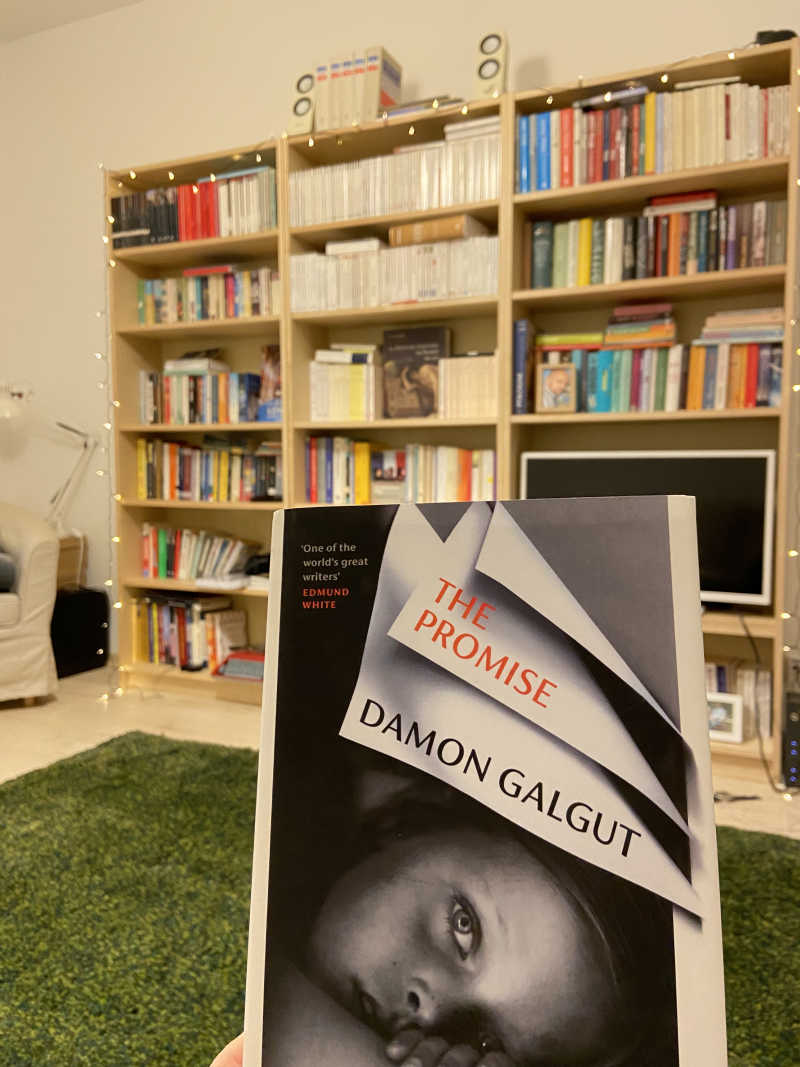27/01/2022
Damon Galgut, "The Promise"
Deeply rooted in the South African reality of the past three decades, the last year’s Booker Prize winner, The Promise by Damon Galgut, is a story about an agricultural family, the Swarts, whose destiny unfolds to the rhythm of four consecutive funerals, political changes and a constantly returning question of an unkept promise once made by seriously ill Manie to her black servant Salome. At death’s door, she wishes for the decrepit tiny cottage situated on the other side of the rural property to belong to her indigenous maid.
Barely present in the narration, the eponymous commitment gives way to the story of those people capable to decide whether the wish of the late woman will be one day fulfilled or forgotten, whether Salome will own the shabby house or be constantly at the mercy of her masters, with the fear of potentially becoming homeless. Chapter by chapter, the author narrates the lives of Manie’s husband and her three children - unfaithful Astrid, haunted by his troubled past, Anton and mysterious, free-spirited Amor - without mentioning the slightest detail of Salome’s existence.
One is tempted to search for a hidden meaning in this narrative choice. Just like the autochthonous South African people, Salome seems to be voiceless and relegated to the background of the action. The twists and turns of the promise, while central to the book, are barely brought up by the members of the family whose self-absorption entirely monopolises the narration. It is worth noticing that they must, one by one, disappear before Salome officially becomes the legal proprietor of her modest abode. An analogy between Galgut’s technique and the history of his home country naturally comes to mind. Wasn’t South African reality controlled and narrated by the ruling class for centuries? Did black people, until recently, not live in the shadow of their white compatriots? Did not the abolition of apartheid finally lead to the shift in the narrative of national history?
Any review of The Promise would be incomplete without analysing, even briefly, Galgut’s narration technique, since it is arguably the most interesting feature of his novel. We are confronted with a sort of stream of consciousness taken to the extreme. Not always considerate of his readers, the writer freely plays with constantly changing focalisation, unrestrainedly alternates the first and the third persons, and amalgamates dialogues with the text, sometimes without mentioning the name of the speaker. Other stylistic aspects do not facilitate reception. For example, Galgut allows himself to make metaliterary comments, which certainly highlights the demiurgic power of the writer, excludes any pretension of the story to be true and enriches this already complex text but troubles, even more, the communication between the writer and the reader. A similar effect is produced by the introduction of new characters: depending on the focalisation, the author tends to call them by different names. Because of the above-mentioned components, appreciating Galgut’s writing takes both time and effort. At first unsettled, we gradually become accustomed to this unusual narrative and eventually enjoy its originality.
Despite the complicated, and sometimes difficult to follow, structure The Promise is without doubt worth reading. Thanks to its captivating content and innovative technique, it stands as one of the most valuable books of the last few years.
